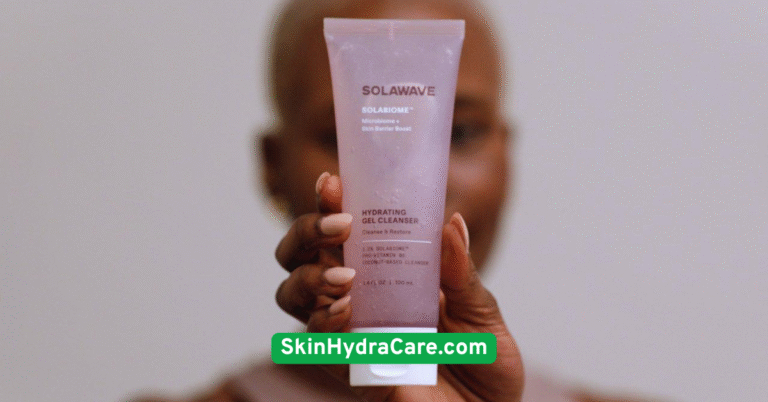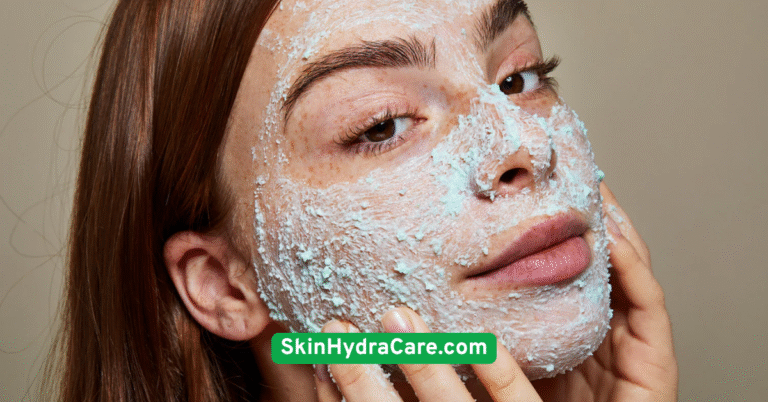12 Soothing Skincare Tips to Soothe Sensitivity

1. Choose Fragrance-Free Skincare Products
When it comes to sensitive skin, fragrance can be a major culprit for irritation. While scented products smell lovely, many fragrances—both synthetic and natural—can trigger redness, itching, or breakouts. That’s why selecting fragrance-free skincare is a game changer for sensitive skin relief.Look carefully at labels. Some products advertise as “unscented” but still contain masking fragrances. Instead, opt for formulas specifically labeled “fragrance-free” or “for sensitive skin.” Ingredients like aloe vera, calendula, or green tea extract are excellent soothing alternatives that don’t compromise gentleness.By ditching fragrances, you minimize the risk of flare-ups and give your skin space to heal. It’s a small but impactful step toward a calmer, more balanced complexion.

2. Use Gentle Cleansers
Cleansing is a vital step, but if you have sensitive skin, harsh cleansers can do more harm than good. Many traditional face washes contain sulfates and foaming agents that strip natural oils, leading to dryness and irritation.Instead, opt for mild, non-foaming cleansers with a creamy or gel-like texture. These formulas cleanse effectively without disrupting your skin’s natural moisture barrier. Look for gentle surfactants like decyl glucoside or coco glucoside.Cleansing with lukewarm water—not hot!—helps preserve skin hydration. Remember, your goal is to remove impurities while nurturing your skin’s delicate ecosystem, not to over-cleanse or irritate.

3. Incorporate Soothing Ingredients
Nature offers some incredible ingredients specifically suited for sensitive skin. Aloe vera, chamomile, and colloidal oatmeal are standout examples with soothing, anti-inflammatory properties.Aloe vera gel instantly calms redness and replenishes moisture, while chamomile reduces irritation thanks to its antioxidants and flavonoids. Colloidal oatmeal, made from finely ground oats, acts as a gentle skin protectant and anti-itch remedy.Choosing skincare with these ingredients can significantly reduce inflammation and discomfort. Plus, they often work well together to support a healthy skin barrier and improve overall skin tone.

4. Avoid Hot Water When Washing
It might feel great to splash your face with hot water, especially in the morning or after a long day. However, hot water can strip away your skin’s natural oils and disrupt the protective barrier, exacerbating sensitivity.Stick to lukewarm water to cleanse and rinse. This temperature is gentle enough to avoid drying your skin yet effective for removing dirt and impurities. Hot water also increases blood flow, which may worsen redness in sensitive skin.After washing, gently pat your skin dry with a soft towel—avoid harsh rubbing. This simple habit helps maintain your skin’s moisture balance and keeps sensitivity in check.

5. Apply a Hydrating Toner
Toners often get a bad rap, but the right one can be a soothing hero in your sensitive skincare routine. Avoid toners with alcohol or astringents, which can further dry out or irritate skin.Instead, choose alcohol-free, hydrating toners formulated with calming ingredients like rose water, witch hazel (alcohol-free), or hyaluronic acid. These help restore your skin’s pH balance, reduce redness, and boost hydration.Applying a gentle toner after cleansing prepares your skin for better absorption of moisturizers and serums. It’s a simple step that can make a big difference in managing sensitivity.

6. Moisturize Regularly with Barrier-Repair Creams
Moisturizing isn’t just about hydration; it’s crucial for repairing and maintaining your skin’s protective barrier. Sensitive skin often has a weakened barrier, making it prone to irritation and moisture loss.Look for moisturizers rich in ceramides, fatty acids, and cholesterol—these lipids help rebuild the barrier and lock in moisture. Creams with ingredients like shea butter or squalane also provide nourishing hydration without clogging pores.Apply moisturizer twice daily, ideally right after cleansing and toning, to seal in moisture and shield your skin from environmental stressors. Consistency is key to soothing sensitivity and preventing flare-ups.

7. Use Sunscreen Specifically for Sensitive Skin
Sun protection is non-negotiable, especially if you have sensitive skin. UV rays can inflame and damage your skin, worsening redness and irritation over time.Choose mineral sunscreens containing zinc oxide or titanium dioxide, as these physical blockers are less likely to cause reactions compared to chemical sunscreens. Mineral formulas sit on top of the skin, reflecting UV rays gently without absorption.Apply sunscreen every morning, even on cloudy days or if you’re indoors near windows. Remember, a broad-spectrum SPF 30 or higher offers the best protection while minimizing risk of irritation.

8. Avoid Exfoliating Too Often
Exfoliation helps remove dead skin cells and promotes renewal, but overdoing it can damage sensitive skin. Frequent or harsh exfoliation strips away the natural oils and weakens the skin barrier, leading to more redness and sensitivity.For sensitive skin, opt for gentle exfoliation methods no more than once or twice a week. Chemical exfoliants like lactic acid or mandelic acid are milder options compared to physical scrubs.If you notice any redness, stinging, or dryness after exfoliating, dial back the frequency or pause altogether. Your goal is to promote healthy skin turnover without triggering irritation.

9. Patch Test New Products
Introducing new skincare products can feel exciting but also risky when your skin is sensitive. A patch test is a simple way to avoid unpleasant reactions.Apply a small amount of the product on the inside of your wrist or behind your ear and wait 24-48 hours. Look for signs like redness, itching, or swelling.If there’s no reaction, you can safely include the product in your routine. If irritation occurs, avoid using it on your face. Patch testing protects your skin and prevents unnecessary flare-ups.

10. Manage Stress for Healthier Skin
Did you know that stress can worsen skin sensitivity? When you’re stressed, your body releases cortisol, which can increase inflammation and make your skin more reactive.Incorporate stress-relief techniques like meditation, deep breathing, yoga, or even simple walks outdoors. These practices calm your nervous system and help maintain skin balance.A calmer mind often leads to calmer skin—so don’t underestimate the power of managing stress in your skincare journey.

11. Maintain a Balanced Diet Rich in Antioxidants
What you eat affects your skin’s health and sensitivity. A diet rich in antioxidants—found in fruits, vegetables, nuts, and seeds—helps fight free radicals that cause inflammation and damage.Vitamin C, E, omega-3 fatty acids, and zinc are especially beneficial for supporting skin repair and reducing redness. Hydration is equally important; drinking enough water keeps your skin plump and resilient.Avoiding processed foods, excessive sugar, and alcohol can also reduce skin flare-ups. Nourishing your body from the inside out complements your topical skincare efforts perfectly.

12. Consult a Dermatologist for Persistent Sensitivity
If your skin sensitivity persists despite your best efforts, it might be time to consult a dermatologist. They can help identify underlying causes such as allergies, eczema, rosacea, or other conditions.A professional can recommend tailored treatments and prescribe products suited specifically to your skin type and concerns. Sometimes, personalized care is the best way to finally find relief.Remember, sensitive skin doesn’t have to hold you back. With expert guidance, you can develop a routine that soothes and protects your skin long-term.

Conclusion
Sensitive skin can be challenging, but with the right approach, it’s absolutely manageable! These 12 soothing skincare tips are designed to calm irritation, restore your skin’s natural barrier, and help you enjoy a radiant, comfortable complexion. From choosing fragrance-free products to managing stress and seeking expert advice when needed, every step matters.
Consistency and patience will reward you with healthier, happier skin. So why wait? Start incorporating these gentle tips into your routine today and embrace the soothing skincare journey ahead!





